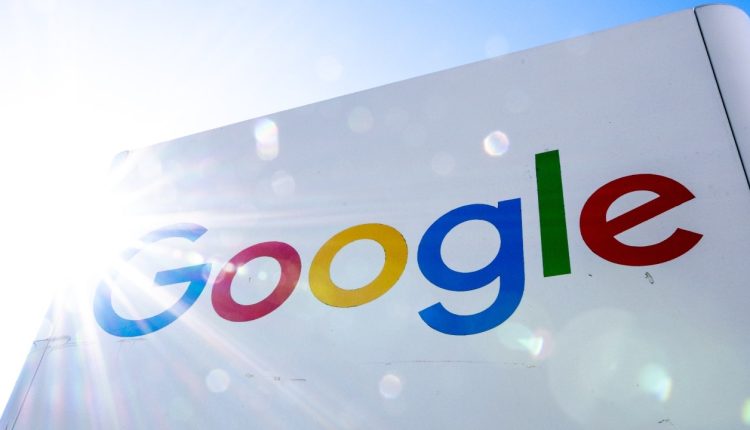Google’s parent company Alphabet on Tuesday released its third quarter earnings which beat analysts’ financial estimates despite heavy investment in artificial intelligence (AI), but the company’s stock slid amid the performance of its cloud business.
Google’s financial performance beat analysts’ estimates for profit and sales, but analysts noted Google Cloud revenue grew 22.5% to $8.41 billion – down from 28% in the prior quarter and the unit’s slowest revenue growth since the first quarter of 2021 and lower than Wall Street’s estimate of $8.62 billion. The company’s stock was down about 6% in after hours trading on the news.
Alphabet Chief Financial Officer Ruth Porat was asked by FOX Business’s Susan Li about the company’s cloud division on Tuesday and Porat replied, “I think the only thing to point to is, again, we saw GCP (Cloud) revenue growth affected by some customer cost optimizations in the third quarter, and Google Workspace revenue growth was driven by a meaningful increase in average revenue per seat.”
META, ALPHABET SHARES NEAR 52-WEEK HIGHS
Google’s ad revenue beat expectations with a $59.65 billion haul compared to estimates of $59.12 billion. Porat touted the growth in Google’s advertising business both in web searches and on YouTube, which accounted for $7.95 billion in revenue for the quarter.
| Ticker | Security | Last | Change | Change % |
|---|---|---|---|---|
| GOOGL | ALPHABET INC. | 138.81 | +2.31 | +1.69% |
“I think that what you’re really seeing here with this ad revenue growth is the real resilience in search as well as a stabilization in YouTube ad revenues,” she said. “You’re seeing performance in search that was led by the retail vertical and then we’re really excited about what we’re seeing in YouTube ads, the acceleration and growth there is both from brand advertising and direct response.”
Google’s advertising business is currently the focus of a federal antitrust lawsuit. The Dept. of Justice argues that Google engaged in anticompetitive behavior and subverted its competitors in the digital advertising space. Porat declined to comment on the ongoing antitrust case.
GOOGLE ROLLING OUT NEW AI-POWERED TOOLS FOR DOCTORS
AI-related initiatives fueled a significant amount of capital expenditures in the quarter, with Alphabet reporting over $8 billion in spending that was “overwhelmingly” focused on technological infrastructure. Servers and data centers were the two largest investment areas, and the company’s AI initiatives span the cloud, search, YouTube, and smartphones. Porat said, “We’re seeing a lot of interest in all of the potential applications of AI across the customer base. It is still early.”
“We’ve continued to see a lot of interest in everything that we’re able to do across Alphabet with respect to AI. It’s not just in the cloud but the application across search and YouTube with the Pixel phone and more,” she added. “So we want to make sure that we’ve got the capacity to invest while still delivering attractive, sustainable financial value and that goes to the categories that we’ve talked about on prior calls around product prioritization, headcount, real estate, what we’re doing with our technical infrastructure efficiency and beyond.”
TECH GIANTS BATTLING FOR CONTENT TO TRAIN AI, MICROSOFT CEO SAYS
Alphabet laid off about 12,000 employees earlier this year, or about 6% of its worldwide workforce, as it restructured to adjust to a “different economic reality.” The company spent about $2.1 billion on severance and related charges in the first nine months of the year.
“We’ve repeatedly said that we’re focused on durably reengineering our cost base and part of that is all around product prioritization, which then has an impact on the pace of hiring and what you’ve seen is a slower pace of hiring, which further benefits from redeploying headcount internally. And so, you know, that’s translating through to the headcount growth that you’re seeing here,” Porat said.
Porat was asked about the state of California’s decision to suspend the testing and deployment permits of autonomous vehicle firm Cruise, a rival to Google subsidiary Waymo in the self-driving car space, over regulators’ investigations into the safety of the vehicles.
“Our focus is really a long term safety driven approach to scaling what we’re doing. And that continues to be the driving mission and we’re proud of the progress that they’ve made where Waymo is now serving more than 10,000 trips across Phoenix, San Francisco and LA every week, and continuing to look at testing in different geographies,” Porat said.
Reuters contributed to this report.
Read the full article here

